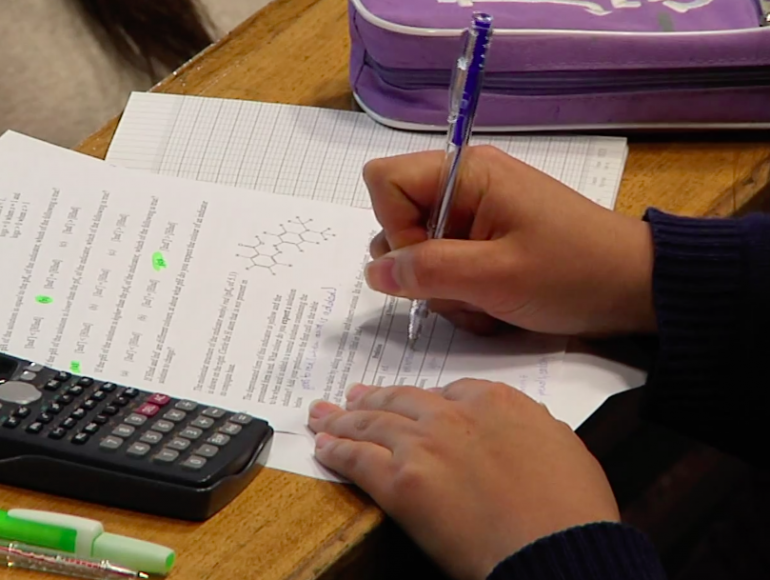There are lots of benefits in taking notes during lectures. Before slides and handouts, students used to spend the majority of the class trying to keep up with the content being written on the boards or projector. This left little time to absorb the material or develop understanding: the ‘best’ students did this in the library or their rooms afterwards. If the slides contain all of the lecture content then students spend little time writing: the ‘best’ students are able to absorb the information and develop their understanding but many may just let the words drift over them.
The most effective learning experience may fit between these extremes – there are a number of advantages in encouraging students to write (or draw) in class. Ask students to write summaries and set paraphrasing tasks during the lecture: it aids memory and helps students digest and think about the ideas being presented. They will need to think about what is important and this will provide them with better notes to revise later. In scientific and technical subjects, tackling a problem or drawing can similarly help students get immediate practice and feedback on their understanding. Think about when students should take notes in your lectures and encourage them to do so. Being active in the lecture and giving breaks for writing tasks can help maximise attention.
When observing classes from the back row as part of ‘Week 4 // Open Door‘, it was noticeable that many students were taking notes on laptops. Some reports have suggested students who take notes longhand remember more and tend to have deeper understanding:
“….students who took notes on laptops performed worse on conceptual questions than students who took notes longhand. We show that whereas taking more notes can be beneficial, laptop note takers’ tendency to transcribe lectures verbatim rather than processing information and reframing it in their own words is detrimental to learning.”
Meuller P. & Oppenehimer D., (2014), The pen is mightier than the keyboard: Advantage of longhand over laptop notetaking, Psychological Science, 25(6), 1159-1168.
This is partly because students write more slowly by hand, so they cannot just transcribe the lecturer’s words verbatim. They need to listen and paraphrase, helping their brain comprehend and retain the information. It is also difficult to make sketches and draw on laptops, so students get less practice in doing this if they rely on their computer. Countering this, electronic notes are easier to file, store, retrieve and share. As tablets and laptops with pens become more accurate and widely available, perhaps these could provide the best solution for learning?





